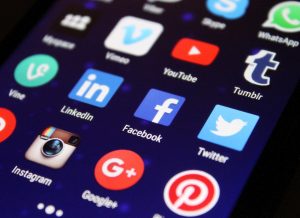It’s hard to think of a world where social media didn’t exist, but most of us lived it: we walked uphill both ways to landlines so we could communicate with our friends and family. Fast forward to the modern era and social media isn’t just how we keep in touch with friends from high school; it’s also how we check in with our parents, how we get our news, and how we choose which businesses to solicit. Yes, it’s practically a one-stop-shop offering everything we need to know.
And it’s something that may go away.
It seems audacious to say, especially as we pause this article to post to Instagram. Still, it’s written on the Facebook walls.
But, why? Why would social media disappear when it’s something so heavily relied on by the masses?
There are two main reasons.
First of all, social media offers many benefits and has revolutionized the way we connect with each other. Do you want to chat at midnight with a friend in China? Do you want to share pictures with an Aunt in Mongolia? Do you want to tag someone from Africa? Social media lets you do that.
It connects us, sure, but it disconnects us, too. It does this because we no longer talk to each other. We don’t pick up a phone or a pen. And this influences social skills and our ability to relate to our fellow wo(man). Social media is also a breeding ground for controversy, especially when it comes to politics. That leaves us disconnected, too.
Life is cyclic – styles go out of fashion only to return to the spotlight and history repeats itself. Nothing lasts forever; it’s hard to believe social media will be an exception.
But wait! There’s another side to this.
The above references personal use of social media: your roommate from college posting about her boyfriend’s new haircut. Professional use of social media is another story.
Businesses use social media to connect people to products and services – that changes its dynamic: we strive for connection to our loved ones but we don’t need to feel warm and tingly about our plumber. Simply, the sharing of professional content is the new social media: personal content is on the way out.
We’ve already seen this transformation. Facebook began as a platform limited to college students. Today, it’s a mainstay of businesses throughout the world; it – and other social media platforms – are among the best ways to advertise.
Facebook users have already reacted to this revolution: according to the Wall Street Journal, they are growing increasingly passive as the companies take control.
It makes sense: many businesses hire professional marketers (like us) to run their social media accounts. These professionals write copy that’s engaging, informative, and humorous. Grandma’s posts about her gout just don’t stand a chance.
Of course, this isn’t to say that companies will never see their social media stock fall – as mentioned above, life is cyclic. But it’s fair to say that the pros have quite a bit more staying power.

